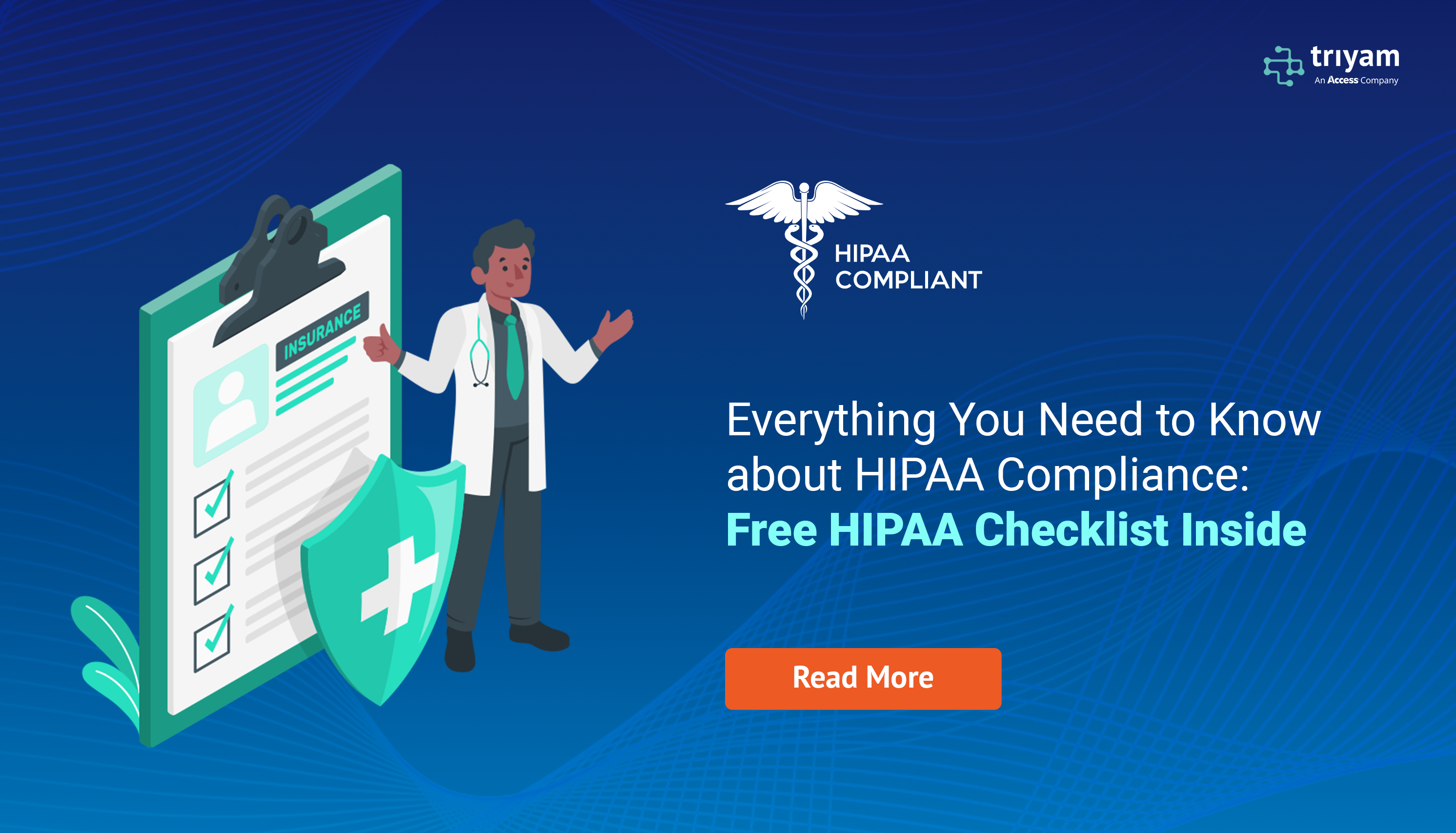With 95% of identity theft originating from stolen hospital records, it’s crucial to understand HIPAA compliance. Let’s note how HIPAA safeguards electronic health records (EHR).
What is HIPAA compliance?
HIPAA compliance refers to adhering to the regulations set forth by the Health Insurance Portability and Accountability Act (HIPAA) in the U.S. This federal law mandates the protection and confidential handling of patient health information. HIPAA compliance involves implementing measures to ensure the privacy, security, and integrity of Protected Health Information (PHI).
Organizations must establish policies for data protection, train employees on privacy practices, and conduct regular audits to identify and address vulnerabilities. Failure to comply can result in significant fines and legal repercussions. Essentially, HIPAA compliance is about safeguarding sensitive patient data and maintaining trust in the healthcare system.
Rules of HIPAA
HIPAA compliance encompasses rules designed to protect patient information. Did you know that 34% of data breaches in healthcare organizations came in the form of authorized access or disclosure?
Here are the key HIPAA rules designed to ensure data protection:
- Privacy Rule: Safeguards the confidentiality of patients’ medical records and health information. It sets standards for how Protected Health Information (PHI) is handled and gives patients rights to access and amend their records.
- Security Rule: Establishes standards for securing electronic health records (ePHI) with technical, administrative and physical safeguards to prevent unauthorized access.
- Breach Notification Rule: Requires covered entities to notify patients, the Department of Health and Human Services (HHS) and the media about breaches and redressal measures if data is compromised.
- Enforcement Rule: Outlines procedures for investigating compliance issues and imposing penalties for violations. It includes guidelines for the HHS Office for Civil Rights (OCR) to address non-compliance through investigations and corrective actions.
Who should be HIPAA compliant?
HIPAA compliance is required for covered entities such as healthcare providers, and healthcare organizations that handle Protected Health Information (PHI) using innovative EHR systems. Business associates of these entities, who perform services involving PHI, must also comply with HIPAA regulations. These include hospitals, clinics, insurance companies, IT supporters and more.
Why is HIPAA Compliance Needed?
- Protects Patient Privacy: Keeps sensitive health information confidential and secure.
- Prevents Data Breaches: Reduces the risk of unauthorized access and identity theft.
- Avoids Legal Penalties: Prevents fines and legal consequences for non-compliance.
- Maintains Trust in Healthcare: Ensures patients security and their health information.
- Promotes Consistent Standards: Mandates data protection practices across the industry.
HIPAA Myths
- HIPAA Only Applies to Healthcare Providers: HIPAA also covers health plans, clearinghouses, and business associates handling PHI.
- Patient Consent Is Always Required: HIPAA allows information sharing without consent for treatment, payment, and specific legal reasons.
- HIPAA Compliance Guarantees No Data Breaches: Compliance reduces risks but doesn’t eliminate the possibility of data breaches.
HIPAA Compliance Checklist
- Conduct a Risk Assessment: Regularly evaluate potential risks to the confidentiality, integrity, and availability of Protected Health Information (PHI).
- Implement Privacy Policies: Develop and enforce policies for handling PHI, including access controls and data sharing procedures.
- Ensure Secure Communication: Use encryption and secure channels for transmitting PHI, both electronically and verbally.
- Provide Staff Training: Educate employees about HIPAA regulations, privacy practices, and data security measures.
- Establish Access Controls: Limit access to PHI to authorized personnel only, and use unique login credentials and strong passwords.
- Create a Breach Notification Plan: Develop procedures for promptly notifying affected individuals, the Department of Health and Human Services (HHS), and the media in the event of a data breach.
- Conduct Regular Audits: Perform periodic audits to ensure compliance with HIPAA standards and address any identified issues.
Review and Update Policies: Regularly update privacy and security policies to reflect changes in regulations and technology.

